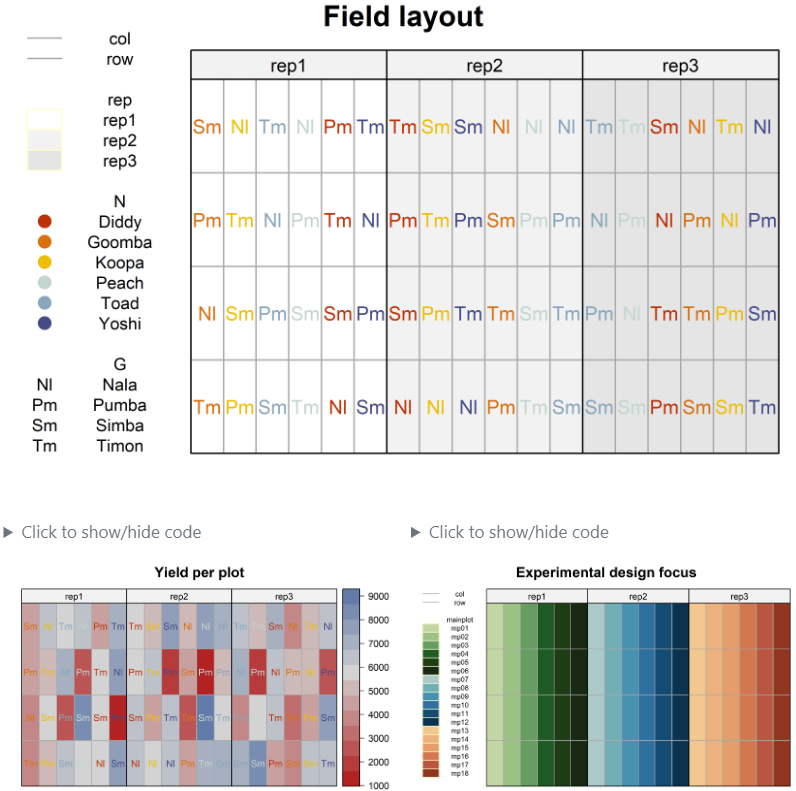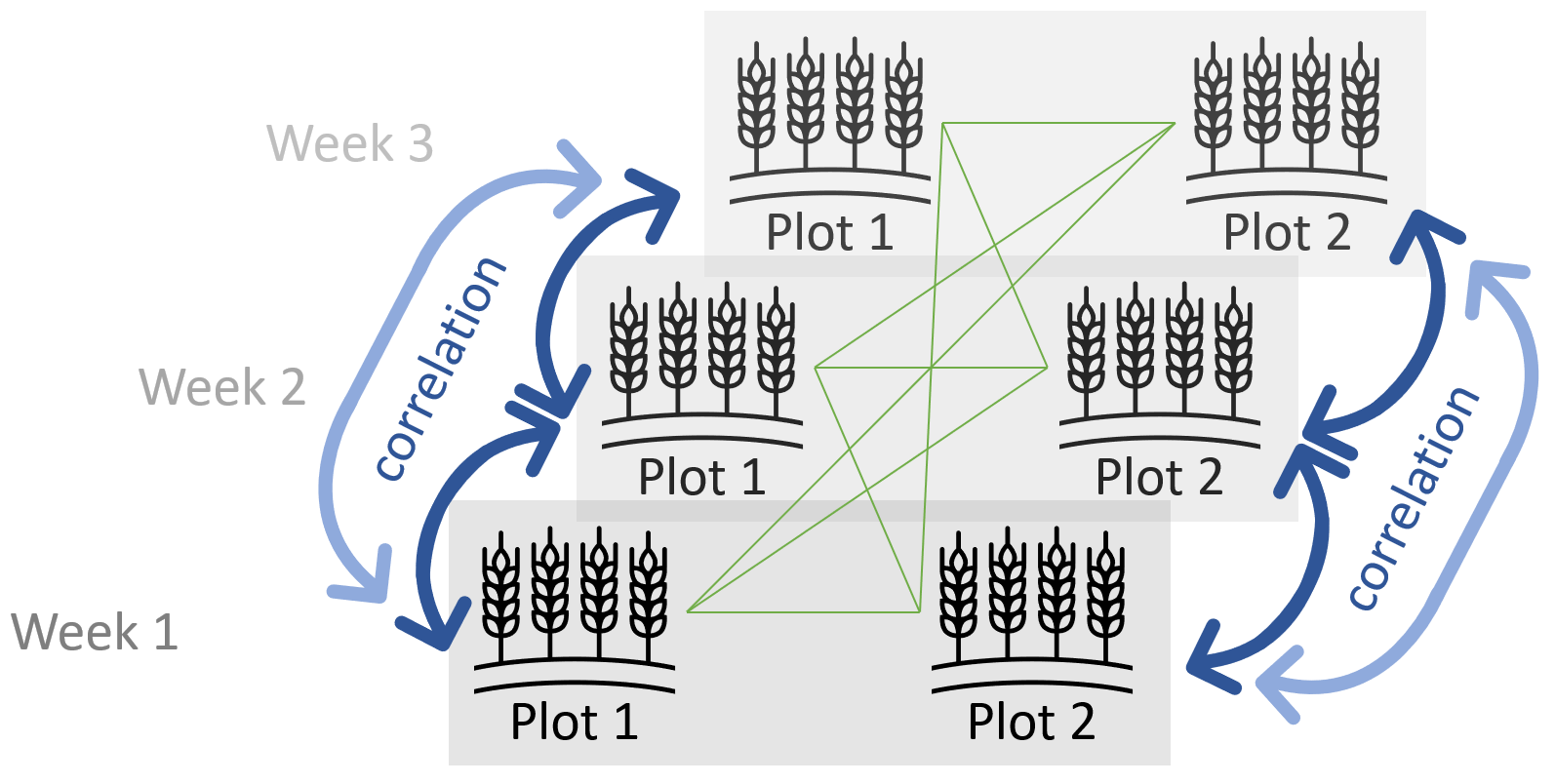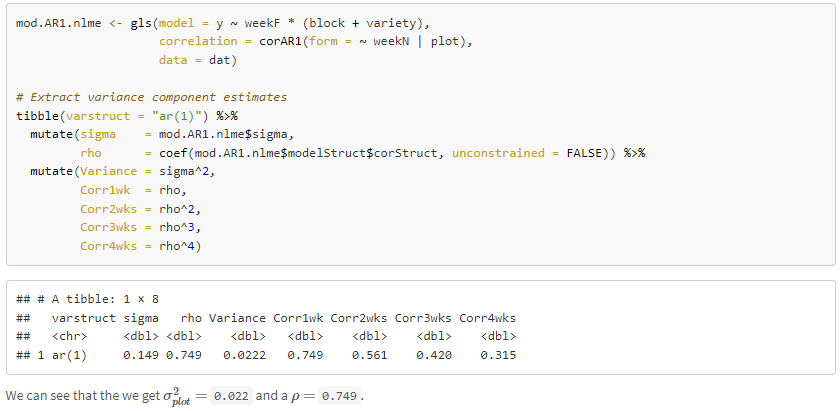From ANOVA to Mixed Models with Covariance Structures
This course is designed for natural scientists who already have experience with statistical evaluation in R (e.g. regression, ANOVA), but want to learn more about the possibilities of e.g. mixed models or structured and efficient use of R in general. As the name suggests, this course is the second part of a course series and builds on the course "Data Science in Experimental Natural Sciences with R (Part 1) – From Professional Graphs to ANOVA". Participation here does not require participation in the first course, however, the knowledge conveyed there should be present. The main aim of the course is to teach the R syntax and statistical knowledge in an intuitive and applicable way. Particular emphasis is placed on practical application. Therefore, the methods listed below and the underlying theory are explained using illustrative examples. The examples used in the course mainly come from agricultural sciences or experimental biology/ecology. The contents of the course are as follows:
Statistics:
Critical discussion about p-values and significance
Critical discussion about t-test or Tukey's test (etc.)
Multi-factor ANOVA
Model selection (R2, AIC)
Mixed models
Mixed models with covariance structures
R-packages: {lme4}, {nlme}, {glmmTMB}
Brief outlook: Generalized models (count data, presence/absence, proportions)
Experimental designs (plus those from Part 1)
- Split-plot design
- Repeated measures
Data Processing and Preparation:
- Efficient and controlled analysis of multiple datasets
- Professional creation of various graphs; packages: {ggplot2}, {desplot}
- Reproducible analyses (including introduction to R Markdown)
Basic statistical knowledge is advantageous. If the first part of this course was not attended, please work through the four chapters in "R Basics"
here. R and RStudio must be installed before the course begins.
Here are a few tips to prepare for my online courses. Scripts for all
my workshops are always available online
here and are continuously improved and expanded.


